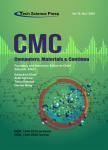Ultrasound Speckle Reduction Based on Histogram Curve Matching and Region Growing
作者机构:Department of Computer ScienceChengdu University of Information TechnologyChengdu610225China Institute of Medical InformationChinese Academy of Medical SciencesBeijing100020China Medical SchoolUniversity of MichiganMichigan48109-0168USA
出 版 物:《Computers, Materials & Continua》 (计算机、材料和连续体(英文))
年 卷 期:2020年第65卷第10期
页 面:705-722页
核心收录:
学科分类:0831[工学-生物医学工程(可授工学、理学、医学学位)] 0808[工学-电气工程] 0809[工学-电子科学与技术(可授工学、理学学位)] 08[工学] 0805[工学-材料科学与工程(可授工学、理学学位)] 0701[理学-数学] 0812[工学-计算机科学与技术(可授工学、理学学位)] 0801[工学-力学(可授工学、理学学位)]
基 金:This study is supported by the Chunhui Project(No.Z2015108) the Ministry of Education China,the Sichuan Science and Technology Program(No.2019YFG0196) the high-level personnel launch scientific research projects of Guizhou Institute of Technology(No.XJGC 20150105) the Science&Technology Department of Guizhou Province and Guizhou Institute of Technology Collaborative Fund LH(No.7104) the invitation for bid Project of Education Department of Guizhou Province KY(No.360)
主 题:Ultrasound speckle histogram matching speckle reduction tissue characterization region growing
摘 要:The quality of ultrasound scanning images is usually damaged by speckle *** paper proposes a method based on local statistics extracted from a histogram to reduce ultrasound speckle through a region growing *** single statistical moment-based speckle reduction algorithms,this method adaptively smooths the speckle regions while preserving the margin and tissue structure to achieve high *** criterion of a speckle region is defined by the similarity value obtained by matching the histogram of the current processing window and the reference window derived from the speckle region in ***,according to the similarity value and tissue characteristics,the entire image is divided into several levels of speckle-content regions,and adaptive smoothing is performed based on these classification characteristics and the corresponding window size determined by the proposed region growing *** conducted from phantoms and in vivo images have shown very promising results after a quantitative and qualitative comparison with existing work.



